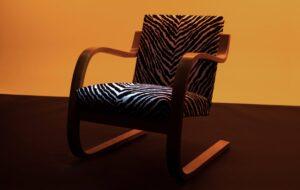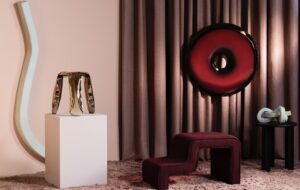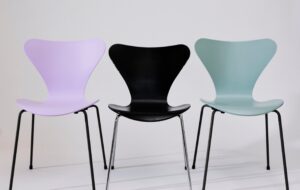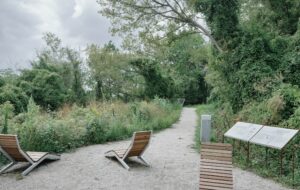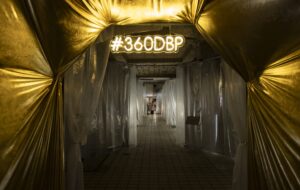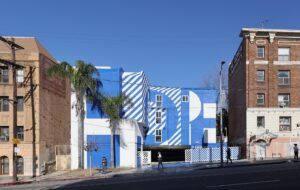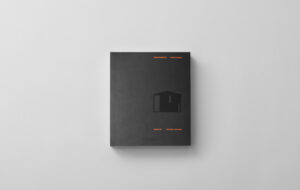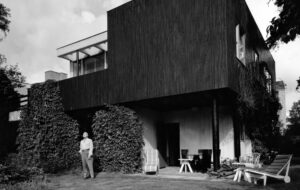
Meet the group aiming to make the design industry more representative of society. By Siobhan Morrin
The design industry is predominantly male – 78% male in fact, according to 2018 statistics from the Design Council. That same report found that only 13% of the design workforce are from BAME backgrounds, and the figure is even lower in architecture – around 1% according to figures from the Stephen Lawrence Foundation. The Design Council also found that only 17% of the top jobs in design were held by women.
It’s these statistics that new initiative Design Can aims to change. The new group, driven by design PR firm Zetteler and launched on 12 August, is guided by a steering committee that includes Icon’s editor, Priya Khanchandani, alongside Ella Ritchie of Intoart, a design studio working with people with learning disabilities; artist and designer, Yinka Ilori, the designer of this year’s Dulwich Pavilion; Ansel Neckles and Steph McLaren-Neckles, creators of inclusive educational platform Let’s Be Brief; and Dr. Jane Norris, associate professor of creative and digital culture at Richmond University.
Design Can is ‘a campaign to help make the design industry better representative of the diverse people it serves’, Khanchandani explained. ‘It is too easy for editors, curators and influencers to say that they aren’t able to find contributors who truly represent the society we live in and keep on working with the privileged few. Design Can will be a source of information about designers, both emerging and established. It will highlight important articles and podcasts that help shift our perceptions, and hopefully become a place of knowledge that can help empower us, as a sector, to change.’
The organisation has launched with an identity designed by Not Flat 3, with a website featuring a manifesto and resources to encourage change within the industry. The manifesto promises to ‘disrupt the status quo’ and asks people within the industry to take action themselves – ‘champion underrepresented talent, commission outside the same old networks and hire for fresh perspectives. At times, you may need to stand aside.’
Khanchandani added, ‘Having campaigned for the past five years for better representation in museums through Museum Detox, I have seen that progress is possible. Incredible power can be found in creating a safe space for the problem of exclusion to be discussed. Inclusivity can only make us better.’
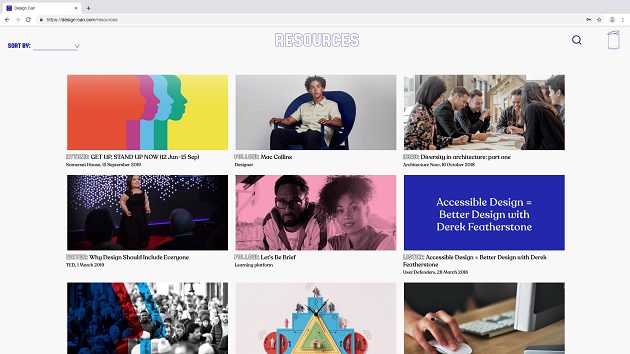
On the Design Can website, followers can find resources including articles and podcasts that tackle the subject of inclusion in design. It also highlights people working within the industry that are already heling to break down barriers, and encourages people to submit their own suggestions of people, events and work for inclusion. It is designed to become a source for people looking to organise a panel or an exhibition, as well as a way of simply highlighting the work of a diverse range of designers.
The campaign aims to raise awareness of and increase inclusion of diverse groups, ultimately improving the industry and its output. ‘People with learning disabilities are rarely thought of as cultural producers in the design industry, which is a missed opportunity for everyone,’ said Ella Ritchie, adding that Design Can will help to ‘champion an equal platform for emerging designers.’
As well as raising awareness of the issue of representation, the site also includes practical action that everyone can take, whatever their role in the design industry. The 10 steps include everything from mentoring the next generation – something for instance that Stephen Lawrence foundation also champions within architecture – to driving recognition, ‘on social media, in meetings and at dinner tables.’
Sabine Zetteler, one of the Design Can founders and director of Zetteler, said, ‘Design Can might not solve the problem, but it’s a refusal to accept the status quo. We want to stop the standard excuses and expand the narrow view of what design can be. This is another step towards an inclusive industry.’
The group began its programme with an initial launch event in east London that included a panel discussion and networking.


